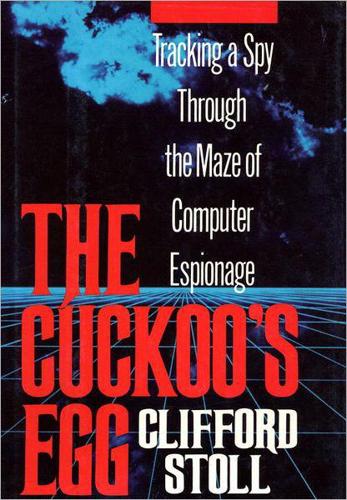
Cuckoo's Egg
by Clifford Stoll · 2 Jan 1989 · 440pp · 117,978 words
Group, Inc. Library of Congress Cataloging-in-Publication Data Stoll, Clifford. The cuckoo’s egg : tracking a spy through the maze of computer espionage / by Clifford Stoll. — 1st ed. p. cm. 1. Hess, Marcus. 2. Stoll, Clifford. 3. Espionage, Soviet— United States. 4. Espionage, Soviet—Germany (West)— Hannover. 5. Defense information, Classified
…
. Title. UB271.R92H477 1989 364.1′68′0973—dc20 89-7808 364.1′68′0973—dc20 eISBN: 978-0-307-81942-0 Copyright © 1989 by Clifford Stoll All Rights Reserved v3.1 Contents Cover Title Page Copyright Acknowledgments Chapter 1 Chapter 2 Chapter 3 Chapter 4 Chapter 5 Chapter 6 Chapter 7
…
also anonymous and pirate bulletin boards; these seldom have much useful information—but they do tell you what one segment of the population is thinking. Clifford Stoll is an astronomer by training and a computer security expert by accident. Since catching the “Hannover Hacker,” he has become a leading authority on computer
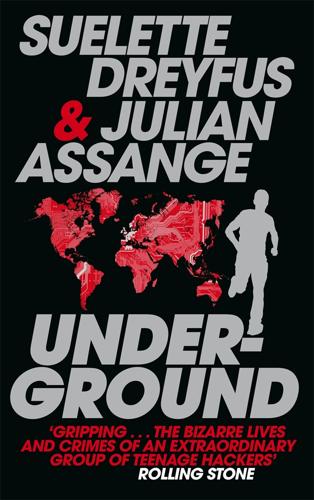
Underground
by Suelette Dreyfus · 1 Jan 2011 · 547pp · 160,071 words
ego, like most hackers, but it was inoffensive, largely couched in his self-effacing humour. Phoenix often made Erik laugh. Like the time he got Clifford Stoll, an astronomer, who wrote The Cuckoo’s Egg. The book described his pursuit of a German hacker who had broken into the computer system Stoll
…
computer underground which was fresh, experimental and, most of all, international. He didn’t need to call up newspaper reporters or gloat about it in Clifford Stoll’s face. ‘Well, what do you reckon?’ Phoenix asked impatiently. ‘No,’ Electron answered. ‘No? You don’t think we will?’ Phoenix sounded disappointed. ‘No.’ ‘Well
…
Level Zdnet Transcripts: Hearing of the Transportation, Aviation and Materials Subcommittee of the House Science, Space and Technology Committee transcript: witness Clifford Stoll, 10 July 1990 ‘Larry King Live’ transcript, interview with Clifford Stoll, 23 March 1990 The World Uranium Hearing, Salzburg 1992, witness transcripts US Government Accounting Office Hearing (computer security) witness transcripts
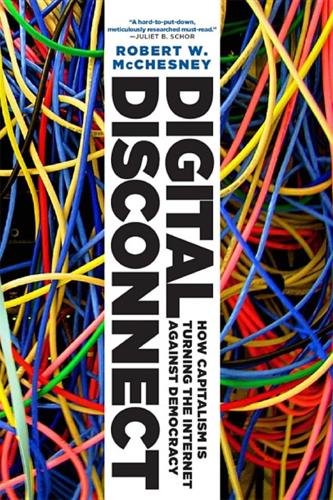
Digital Disconnect: How Capitalism Is Turning the Internet Against Democracy
by Robert W. McChesney · 5 Mar 2013 · 476pp · 125,219 words
in a broad historical perspective. Going back to the early 1990s—from George Gilder’s Life after Television and Nicholas Negroponte’s Being Digital to Clifford Stoll’s Silicon Snake Oil and Lawrence Lessig’s Code and Other Laws of Cyberspace, numerous writers have provided their assessment of the digital revolution. As
…
Internet era, and something very important to being human is being lost.39 This harks back to the first wave of skepticism by people like Clifford Stoll. In 1999’s High-Tech Heretic, Stoll emphasized that the Internet isolated people, made them addicted, and probably created more unhappiness and dissatisfaction with life
…
, MA: Harvard University Press, 2010). 39. Viktor Mayer-Schönberger, Delete: The Virtue of Forgetting in the Digital Age (Princeton, NJ: Princeton University Press, 2009). 40. Clifford Stoll, High-Tech Heretic: Reflections of a Computer Contrarian (New York: Anchor, 1999), 200–206. 41. Naomi Wolf has written about this for years. See Naomi
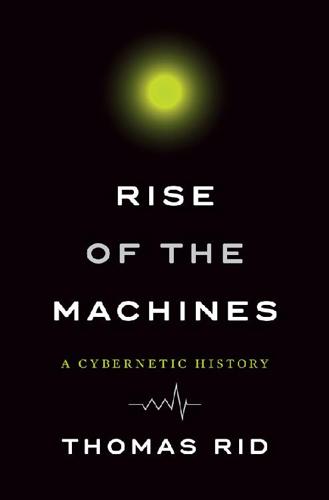
Rise of the Machines: A Cybernetic History
by Thomas Rid · 27 Jun 2016 · 509pp · 132,327 words
the first computer worms on the still nascent internet, and the first to get mainstream media attention. One book in particular influenced the threat perception: Clifford Stoll’s 1989 The Cuckoo’s Egg chronicled how a German hacker breached Lawrence Berkeley National Laboratory and then sold stolen files to the KGB, Russia
…
. 112.Ibid. 113.Howard Rheingold, “Teledildonics: Reach Out and Touch Someone,” Mondo 2000 2 (Summer 1990): 52–54. 114.John Perry Barlow, Lee Felsenstein, and Clifford Stoll, “Is Computer Hacking a Crime?” Harper’s 280, no. 1678 (March 1, 1990): 51–52. 115.Ibid., 53. 116.John Perry Barlow, “Crime and Puzzlement
…
: Government Printing Office, 1991), 10. 37.Winn Schwartau, Terminal Compromise (Old Hickory, TN: Interpact Press, 1991). 38.Steven Levy, Hackers (New York: Doubleday, 1984). 39.Clifford Stoll, The Cuckoo’s Egg (New York: Doubleday, 1989). 40.Alvin Toffler and Heidi Toffler, War and Anti-war: Survival at the Dawn of the 21st
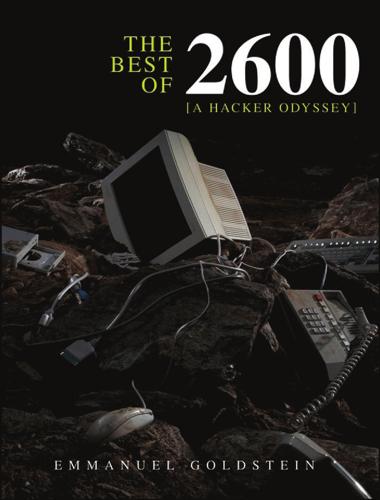
The Best of 2600: A Hacker Odyssey
by Emmanuel Goldstein · 28 Jul 2008 · 889pp · 433,897 words
of about 16,000 when I finished school and I did not really think about doing any hacking again until I read about the famous Clifford Stoll and his hunt for the German hacker. By then, I had an old XT and a 286 and was using a comm program called Qmodem
…
First Amendment in much the same way as George Bush wraps himself in the American flag. Bleech. Whatever the motivations of the cyberpunks (I like Clifford Stoll’s term for them), their actions are unacceptable: they are breaking into computers where they’re not 505 94192c13.qxd 6/3/08 3:34
…
honeypot is to track an intruder who has already made a home in the system. The most noteworthy case of this happening was documented by Clifford Stoll in his book The Cuckoo’s Egg. Stoll was an admin at Berkeley when he found an intruder using his system to steal secrets. But
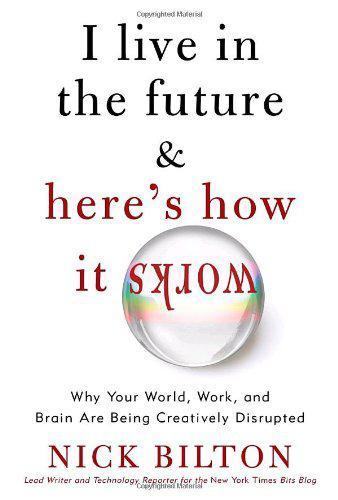
I Live in the Future & Here's How It Works: Why Your World, Work, and Brain Are Being Creatively Disrupted
by Nick Bilton · 13 Sep 2010 · 236pp · 77,098 words
those who dismissed its use in the same way the monks had shrugged off the printing press. In a classic article in Newsweek in 1995, Clifford Stoll, an astronomer and author, threw cold water on all the dreamy possibilities that the online world seemed to have: “Visionaries see a future of telecommuting
…
and How It Changed America, New York: Farrar, Straus and Giroux, 2008. 8 In a classic article in Newsweek: Ken Olsen reference, Financial World (1976); Clifford Stoll, “The Internet? Bah!,” Newsweek, February 27, 1995. 9 Yet studies show that older technologies … emit stronger electronic waves than WiFi hubs: Series of online articles
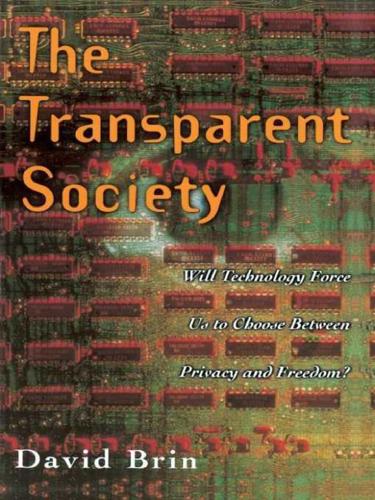
The Transparent Society: Will Technology Force Us to Choose Between Privacy and Freedom?
by David Brin · 1 Jan 1998 · 205pp · 18,208 words
heirsʼ accomplishments in a mere quarter of that time? Inevitably, all this gushing hype has led to a backlash. In a recent book, computer scientist Clifford Stoll coined the term “silicon snake oil” to describe the recent ecstatic forecasts about electronic media. Despite his background, Stoll urged skepticism toward the more extravagant
…
of his cell phone but forgot that each unit is a radio transmitter, with its own quirks that can be traced. There are other examples. Clifford Stoll, author of Silicon Snake Oil, also wrote the fascinating Cuckooʼs Egg, about his own experience hunting down a rogue international hacker-spy in much
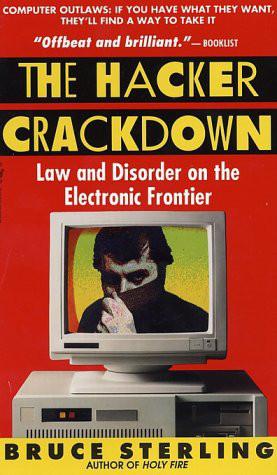
The Hacker Crackdown
by Bruce Sterling · 15 Mar 1992 · 345pp · 105,722 words
level of antisocial daring. Could be West German hackers, in the pay of the KGB. That too had seemed a weird and farfetched notion, until Clifford Stoll had poked and prodded a sluggish Washington law-enforcement bureaucracy into investigating a computer intrusion that turned out to be exactly that—HACKERS, IN THE
…
by members of Germany's Chaos Computer Club. Two Chaos hackers who hung out on ALTOS, "Jaeger" and "Pengo," had been the central villains of Clifford Stoll's Cuckoo's Egg case: consorting in East Berlin with a spymaster from the KGB, and breaking into American computers for hire, through the Internet
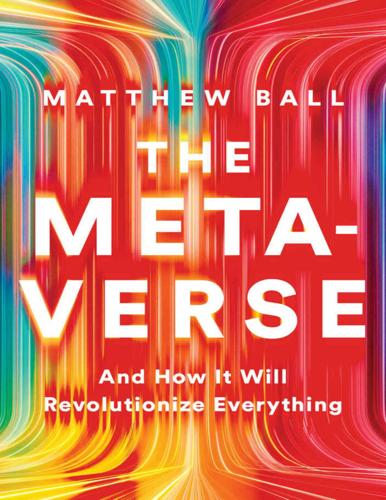
The Metaverse: And How It Will Revolutionize Everything
by Matthew Ball · 18 Jul 2022 · 412pp · 116,685 words
we imagine and when. The fits and bursts of Metaverse development will lead to critiques as well as bouts of disappointment and disillusionment. In 1995, Clifford Stoll, an American astronomer and a former systems administer at the US Department of Energy’s Lawrence Berkeley National Laboratory, wrote the now-infamous book, Silicon
…
/18/20912689/apple-cloud-gaming-streaming-xcloud-stadia-app-store-guidelines-rules. Conclusion Spectators, All 1. Clifford Stoll, “Why the Web Won’t Be Nirvana,” Newsweek, February 26, 1995, accessed January 6, 2022, https://www.newsweek.com/clifford-stoll-why-web-wont-be-nirvana-185306. 2. James Chapman, “Internet ‘May Just Be a Passing
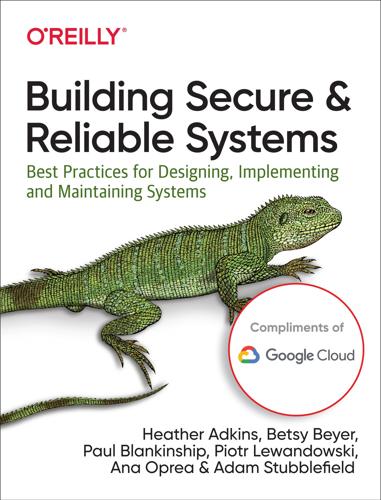
Building Secure and Reliable Systems: Best Practices for Designing, Implementing, and Maintaining Systems
by Heather Adkins, Betsy Beyer, Paul Blankinship, Ana Oprea, Piotr Lewandowski and Adam Stubblefield · 29 Mar 2020 · 1,380pp · 190,710 words
error budgets, see Chapter 3 in the SRE book. Chapter 2. Understanding Adversaries By Heather Adkins and David Huska with Jen Barnason In August 1986, Clifford Stoll, a systems administrator at Lawrence Livermore Laboratory, stumbled upon a seemingly benign accounting error that led to a 10-month search for someone stealing government
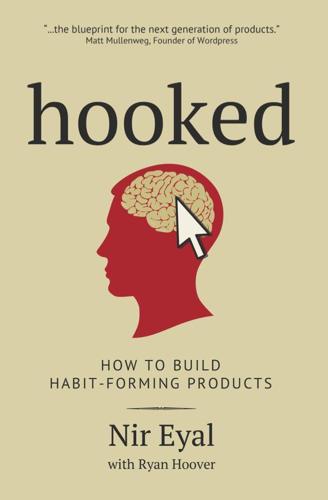
Hooked: How to Build Habit-Forming Products
by Nir Eyal · 26 Dec 2013 · 199pp · 43,653 words
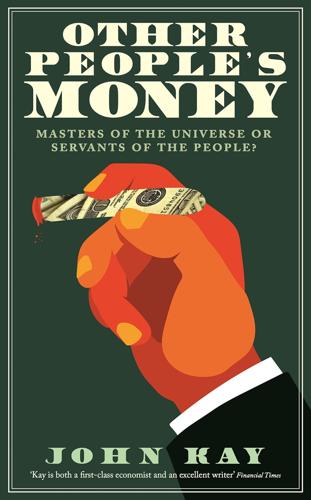
Other People's Money: Masters of the Universe or Servants of the People?
by John Kay · 2 Sep 2015 · 478pp · 126,416 words
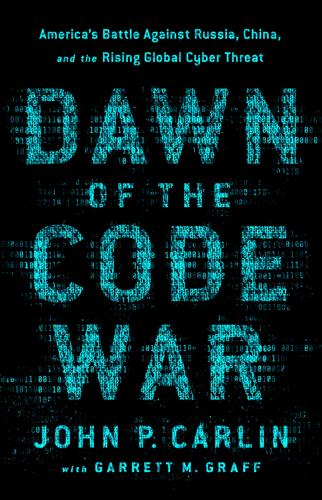
Dawn of the Code War: America's Battle Against Russia, China, and the Rising Global Cyber Threat
by John P. Carlin and Garrett M. Graff · 15 Oct 2018 · 568pp · 164,014 words
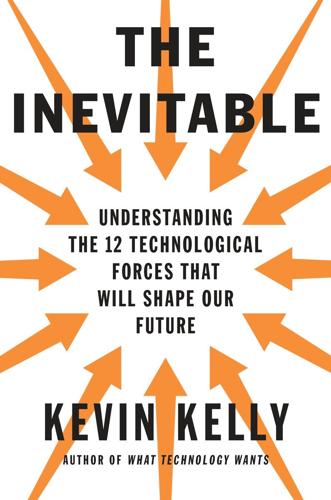
The Inevitable: Understanding the 12 Technological Forces That Will Shape Our Future
by Kevin Kelly · 6 Jun 2016 · 371pp · 108,317 words
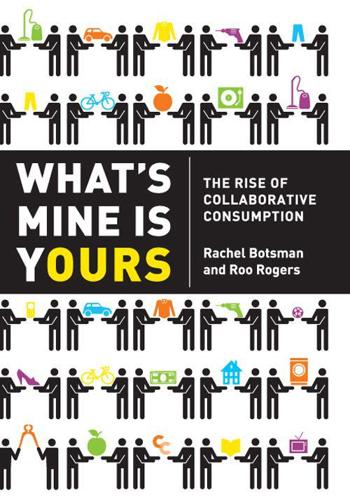
What's Mine Is Yours: How Collaborative Consumption Is Changing the Way We Live
by Rachel Botsman and Roo Rogers · 2 Jan 2010 · 411pp · 80,925 words
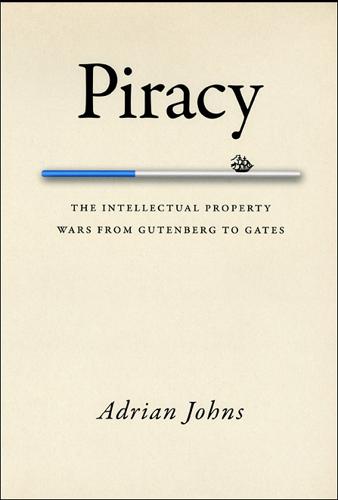
Piracy : The Intellectual Property Wars from Gutenberg to Gates
by Adrian Johns · 5 Jan 2010 · 636pp · 202,284 words
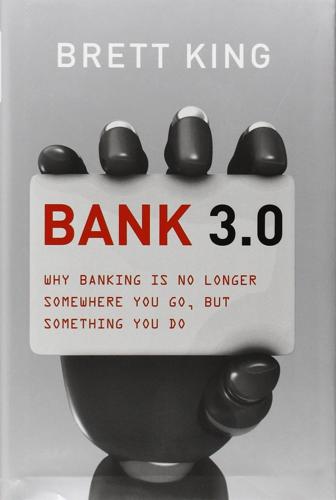
Bank 3.0: Why Banking Is No Longer Somewhere You Go but Something You Do
by Brett King · 26 Dec 2012 · 382pp · 120,064 words
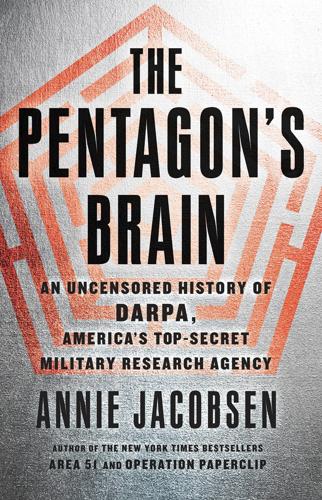
The Pentagon's Brain: An Uncensored History of DARPA, America's Top-Secret Military Research Agency
by Annie Jacobsen · 14 Sep 2015 · 558pp · 164,627 words
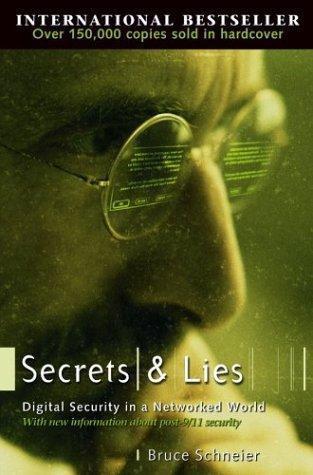
Secrets and Lies: Digital Security in a Networked World
by Bruce Schneier · 1 Jan 2000 · 470pp · 144,455 words
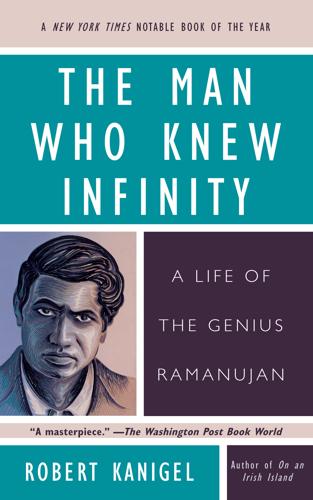
The Man Who Knew Infinity: A Life of the Genius Ramanujan
by Robert Kanigel · 25 Apr 2016